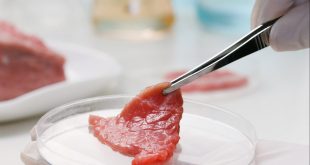By Dr. Lawrence Goodridge
Food integrity is an encompassing phrase that includes food security, food defense, food sustainability, food safety, food fraud and nutrition. These six elements are considered to be the pillars of food integrity, as they each contribute to ensuring authentic food. Providing assurance to consumers and other stakeholders regarding the integrity, authenticity, safety and quality of the food that we produce, import and consume is of prime importance in adding value to the Canadian agri-food economy.
As globalized food production continues to expand, the integrity of the Canadian food supply is under continuous threats, including imported foods from the U.S., such as romaine lettuce, that have caused national outbreaks of foodborne illness. In addition, food fraud – defined as the act of defrauding buyers (whether they be consumers, food manufacturers, retailers or importers) of food or ingredients for economic gain – has been problematic for the food industry throughout history. In Canada, seafood fraud is a major problem with public health implications. For example, several studies conducted at the University of Guelph have consistently found that a high percentage of fish sold in Canada is not the same species as listed on the label.
Climate change continues to challenge the sustainability of the Canadian food supply. The ongoing, severe drought in the Prairies has resulted in reduced availability of crops, leading to less quality and quantity available to consumers.
A systematic and interdisciplinary approach is needed to address issues of food adulteration (whether accidental or deliberate), as well as the effects of climate change on food sustainability, all of which diminish food integrity. Such an approach requires leading experts who can respond to acute crises in the food supply wherever they occur, and who can forestall potential threats before they emerge.
The Canadian Research Institute for Food Safety (CRIFS) at the University of Guelph aims to address challenges associated with the integrity of the Canadian food supply. By working with other departments, centres and institutes at UGuelph and other academic institutions, as well as external stakeholders, CRIFS embraces the three pillars of research, education and outreach to improve food integrity.
Research
A major focus of the CRIFS research program is the development of methods to detect foodborne outbreaks more quickly. The current foodborne outbreak surveillance approach, called the Surveillance Continuum, is a major impediment to the rapid detection of contaminated food, since it relies on sick individuals to seek medical care, and medical professionals to obtain samples, that when tested, yield the causative agent, triggering investigations to find the source of the suspect food. Breakdowns within the Surveillance Continuum (beginning with the fact that most sick people do not seek care) means that national foodborne surveillance networks, such as PulseNet Canada, operated by the Public Health Agency of Canada, are not alerted of an outbreak for an average of three to five weeks post-exposure, allowing contaminated food to remain in circulation, sickening increasing numbers of people.
Research at CRIFS is leading the development of a rapid, multifaceted and integrated approach to enhance foodborne outbreak detection, beginning with regular surveillance of wastewater samples to identify the presence of circulating bacterial, viral, and parasitic pathogens, and data mining of multiple social media sites for detection of keywords associated with foodborne illness such as diarrhea, stomach ache, nausea. Increased signals of wastewater monitoring, social media, or both, would trigger traditional epidemiological investigations to identify the suspected contaminated food, thereby effectively resolving the outbreak. The new surveillance approach will permit detection of outbreaks two to four weeks faster than the current Surveillance Continuum.
Education
Researchers at CRIFS teach within the Food Safety and Quality Assurance Program (FSQA), which is a one-year, course-based program that provides advanced training in food safety and quality, and other aspects of food science and technology. FSQA students acquire knowledge of the fundamentals of food policy development, Canadian and international food law, applied aspects of total quality management, food safety management systems, risk analysis, and detection and epidemiology of foodborne pathogens.
Graduates of the program gain the necessary knowledge and requisite skills to serve as leaders in the domain of food integrity. Graduates are equipped to serve instrumental roles in the formation of public policies, the implementation of regulatory guidelines, industrial compliance with regulations and the regulatory strategies of companies looking to create a sustainable competitive advantage in the food industry, while developing effective strategies to combat issues associated with food integrity.
Service
Comprising a core of participants from industry, academia, research institutes, technology providers and a global network of stakeholders, CRIFS provides a coherent structure and process for assuring the food supply, through the sharing of information between stakeholder groups regarding Canadian food integrity, and implementation of projects to address research gaps by delivering commissioned projects, with the goal of establishing a self-sustaining global network of stakeholders to ensure maximum uptake and dissemination of research results.
The COVID-19 pandemic continues to place enormous pressure on the global food supply, with consequences for the production of safe foods, product mislabelling and disruption to the food supply chain. Modern, integrated approaches to address challenges associated with food integrity will help to alleviate the increasing challenges observed with production and dissemination of food.
 Canadian Food Business
Canadian Food Business




